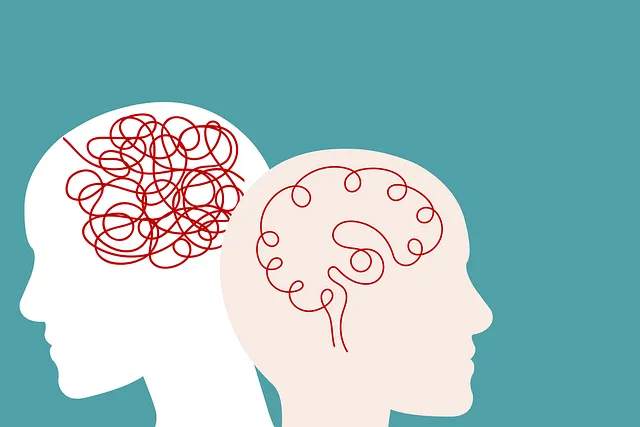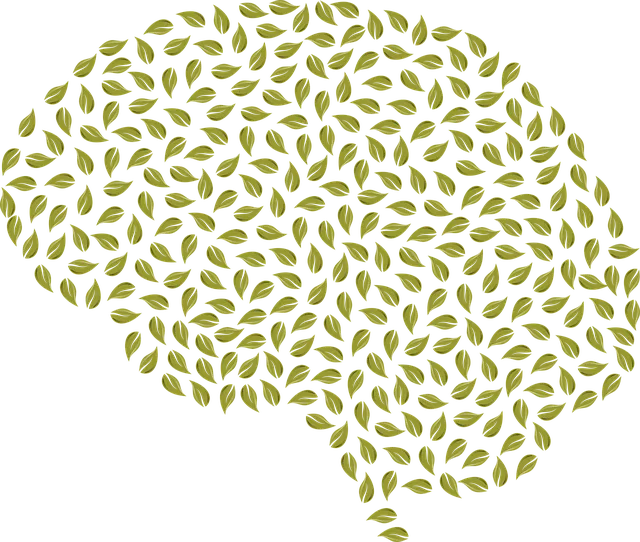Mental wellness programs in Northglenn, tailored for diverse populations, aim to enhance emotional well-being and prevent burnout. Evaluating their effectiveness combines qualitative interviews, focus groups, and quantitative surveys to understand both individual experiences and community needs. Kaiser's mental health coverage in Northglenn offers comprehensive services, including evidence-based practices, mindfulness meditation workshops, and mental wellness coaching programs. Rigorous evaluation methods using tools like Empathy Building Strategies (EBS) and risk assessment techniques confirm the program's alignment with best practices and its impact on residents' overall well-being. By tracking Key Performance Indicators (KPIs) and risk assessments, these evaluations guide improvements and ensure Kaiser's mental health services in Northglenn remain effective and tailored to individual needs.
Mental wellness programs are integral to community well-being, especially in diverse cities like Northglenn. This article delves into evaluating such programs, focusing on Kaiser’s mental health coverage and services accessible to Northglenn residents. We explore standardized assessment tools for program effectiveness, qualitative research methods to capture participant experiences, and key performance indicators (KPIs) for measuring success. Understanding these evaluation methods is crucial in ensuring that mental wellness initiatives are robust and tailored to the unique needs of communities like Northglenn.
- Understanding Mental Wellness Programs: A Comprehensive Overview
- Kaiser's Mental Health Coverage: An Examination of Services and Benefits for Northglenn Residents
- Evaluating Program Effectiveness: Standardized Assessment Tools and Techniques
- Qualitative Research Methods: Capturing Participant Experiences and Insights
- Measuring Success: Key Performance Indicators (KPIs) for Mental Wellness Initiatives
Understanding Mental Wellness Programs: A Comprehensive Overview

Mental wellness programs are designed to promote emotional well-being and prevent burnout, addressing a wide range of issues that affect individuals in their daily lives. These initiatives can be tailored to specific populations, such as students, working professionals, or communities facing unique challenges, like Northglenn residents. Understanding the effectiveness of these programs is crucial, especially considering questions like “Does Kaiser cover mental health services in Northglenn?” for those seeking affordable care.
A comprehensive evaluation of mental wellness programs involves assessing their impact on participants’ mental health, satisfaction levels, and overall quality of life. This process includes qualitative methods like interviews and focus groups to gather firsthand experiences, as well as quantitative techniques such as surveys and data analysis to measure changes in symptoms and behavioral patterns. By combining these approaches, mental wellness program evaluators can gain insights into what works best for different individuals and communities, contributing to the development of more effective Emotional Well-being Promotion Techniques and even inspiring the production of a Mental Wellness Podcast Series that educates and inspires listeners.
Kaiser's Mental Health Coverage: An Examination of Services and Benefits for Northglenn Residents

In Northglenn, Kaiser’s mental health coverage offers a comprehensive suite of services designed to support residents’ mental wellness. This includes access to a range of therapeutic approaches, such as individual therapy, group counseling, and specialized programs focused on conditions like anxiety and depression. One notable aspect is their emphasis on evidence-based practices, ensuring that patients receive effective treatments backed by scientific research.
Kaiser’s benefits extend beyond clinical care with initiatives like Mindfulness Meditation workshops and Mental Wellness Coaching Programs Development. These activities aim to empower individuals with coping strategies for stress management and self-care. Additionally, the health provider prioritizes professional development through training sessions on risk management planning for mental health professionals, fostering a supportive environment where practitioners can enhance their skills while delivering quality care.
Evaluating Program Effectiveness: Standardized Assessment Tools and Techniques

Evaluating a mental wellness program’s effectiveness is paramount to understanding its impact and making informed improvements. Northglenn residents seeking Kaiser’s mental health services should be assured that rigorous evaluation methods are in place, especially considering the evolving nature of mental healthcare needs. Standardized assessment tools play a pivotal role in this process. These tools offer consistent metrics to gauge progress, ensuring that programs align with evidence-based practices and desired outcomes.
One such tool is the use of Empathy Building Strategies (EBS) to assess client satisfaction and therapeutic alliances. By fostering mindfulness meditation and open communication, EBS allows mental health professionals to gauge the program’s success in building supportive relationships, a crucial aspect of recovery. Additionally, risk assessment techniques are employed to monitor clients’ mental health status, especially when addressing potential risks identified during program participation. These methods collectively contribute to Northglenn residents’ overall well-being by ensuring that Kaiser’s mental wellness programs remain effective and tailored to individual needs.
Qualitative Research Methods: Capturing Participant Experiences and Insights

In evaluating mental wellness programs, qualitative research methods play a crucial role in capturing the nuanced experiences and insights of participants. These methods allow for deep dives into individuals’ perceptions, emotions, and interactions within the program setting. Through techniques like interviews and focus groups, researchers can uncover personal stories, challenges faced, and strategies employed to navigate mental health issues. This approach is particularly relevant when exploring questions related to Northglenn does Kaiser cover mental health services, as it provides a human-centric understanding of care accessibility and impact.
By employing qualitative methods, evaluators can assess the program’s effectiveness from the participants’ perspective. For instance, they might explore how Conflict Resolution Techniques or Emotional Intelligence training components influence individuals’ ability to manage stress and engage in meaningful interactions. Additionally, these methods facilitate an understanding of the support systems and resources that participants access, including Crisis Intervention Guidance, thereby offering a comprehensive view of the program’s contribution to mental wellness.
Measuring Success: Key Performance Indicators (KPIs) for Mental Wellness Initiatives

Evaluating the success of mental wellness programs is paramount to understanding their impact and identifying areas for improvement. Key Performance Indicators (KPIs) serve as metrics that track progress, ensuring initiatives align with desired outcomes. For Northglenn residents wondering about Kaiser’s coverage for mental health services, examining KPIs can provide insight into the program’s effectiveness. These indicators might include tracking the number of participants and their engagement levels in programs like Stress Management Workshops, which aim to enhance self-esteem and foster resilience.
Additionally, risk assessment tools play a crucial role in mental health professional development, helping identify potential hazards within the workplace and guiding interventions. By setting clear KPIs, organizations can ensure their mental wellness initiatives are not only reaching their intended audience but also making meaningful strides in promoting individual well-being, as evidenced by improved self-esteem and better stress management skills.
Mental wellness programs are essential components of community healthcare, and evaluating their effectiveness is crucial for continuous improvement. This article has explored various evaluation methods, from standardized assessments to qualitative research, highlighting the importance of understanding participant experiences. In light of this, Northglenn residents seeking mental health support can benefit from Kaiser’s comprehensive coverage, ensuring access to quality services. By utilizing key performance indicators (KPIs) and integrating diverse research techniques, we can assess and enhance the impact of these programs, ultimately fostering better mental wellness outcomes for all.






